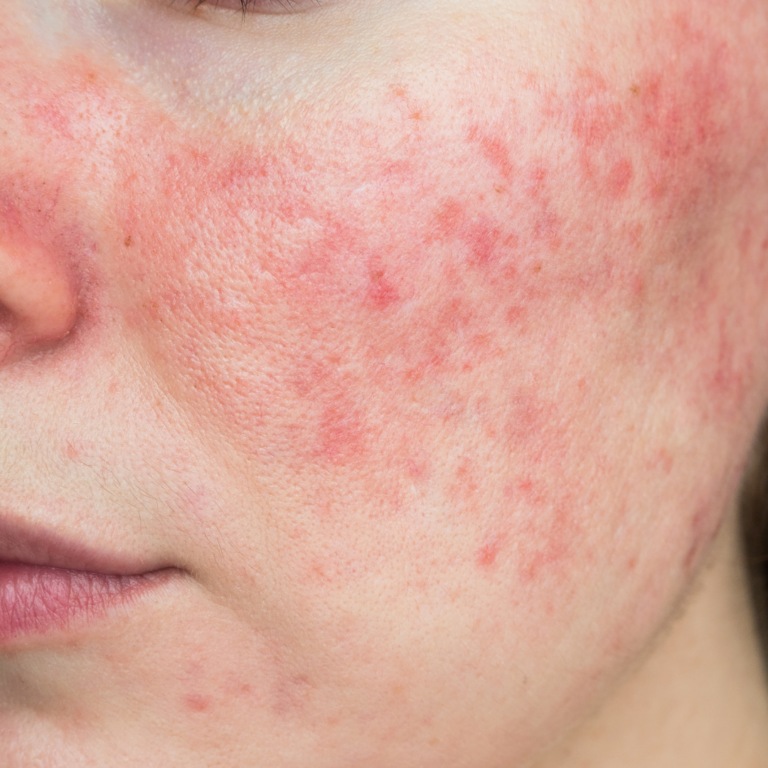Unmasking Endocrine Disruptors: How They Harm Your Body and The Top 12 to Avoid

- What Are Endocrine Disruptors?
- Health Impacts of Endocrine Disruptors
- The Dirty Dozen: Common Endocrine Disruptors to Avoid
- Practical Tips to Reduce Exposure
- Expatriate Women: Specific Concerns and Solutions
- Conclusion
As health-conscious person living in Switzerland, we’re always on the lookout for ways to live our best lives. We prioritize organic produce, hit the hiking trails, and indulge in the occasional decadent chocolate (because Switzerland!). But here’s the thing: hidden toxins in our environment could be silently sabotaging our health journey. These sneaky culprits are called endocrine disruptors, and they’re wreaking havoc on our bodies.
What Are Endocrine Disruptors?
Endocrine disruptors (EDCs) are chemicals that interfere with our endocrine system – the intricate network of glands that produce hormones. These hormones are like chemical messengers that regulate everything from our growth and metabolism to our reproductive health and sleep cycles. Even the slightest disruption to this delicate balance can have significant impacts on our well-being.
EDCs work by mimicking, blocking, or altering the natural production of hormones in our bodies. Imagine someone messing with your Wi-Fi signal – that’s EDCs messing with your hormones! This interference can lead to a cascade of health issues, some immediate, others manifesting later in life.
Health Impacts of Endocrine Disruptors
We’re talking about some serious health problems here. Research has linked EDCs to various health issues including:
- Reproductive Problems: Infertility, reduced fertility, early puberty, and problems during pregnancy.
- Increased Cancer Risk: Breast cancer, prostate cancer, ovarian cancer, and hormone-related cancers.
- Metabolic Disorders: Obesity, diabetes, and difficulty managing weight.
- Developmental Issues: Learning disabilities, ADHD, and problems with growth and development in children.
- Other Serious Conditions: Thyroid problems, immune system disturbances, and neurological problems.
The scariest part? Exposure during critical periods like prenatal development or early childhood can have lasting consequences. And it’s not just us; EDCs can impact future generations too.
The Dirty Dozen: Common Endocrine Disruptors to Avoid
They’re lurking in unexpected places! Here are some of the most common EDCs to avoid:
- BPA (Bisphenol A): Found in some plastic containers, food packaging (especially canned goods), and hygiene products. Opt for BPA-free alternatives.
- Phthalates: Used to soften plastics, they’re found in toys, vinyl flooring, personal care products (think fragrances and lotions), and even some food packaging. Choose phthalate-free products whenever possible.
- Pesticides: Non-organic produce, conventionally raised meat and dairy, and even some gardens may contain pesticide residues. Choose organic options and wash fruits and vegetables thoroughly.
- Parabens: These preservatives are in many cosmetics and personal care products. Look for paraben-free alternatives.
- Triclosan: An antibacterial agent found in some soaps, toothpaste, and even clothing. Opt for triclosan-free products.
- Perfluorinated Chemicals (PFCs): Used in non-stick cookware, stain-resistant fabrics, and some food packaging. Choose cast iron or stainless steel cookware and look for PFC-free options.
- Fire Retardants: Found in furniture, electronics, and building materials. Look for flame-retardant-free options whenever possible.
- Lead: In some older homes (paint), water pipes, and imported toys. Get your water tested and choose lead-safe products.
- Mercury: Primarily found in certain fish (like tuna and swordfish). Enjoy in moderation and choose low-mercury options.
- Arsenic: Found naturally in some water supplies and in certain foods like rice. Use a water filter and vary your diet.
- Chemicals in Lavender and Tea Tree Oil: While generally considered safe, some chemicals in these oils may have endocrine-disrupting properties. Use essential oils with caution, especially during pregnancy.
- Glyphosate: A herbicide used in conventional agriculture. Opt for organic foods whenever possible.

Practical Tips to Reduce Exposure
Don’t worry; we’re not powerless against these hormone disruptors. Here are some practical steps to minimize exposure:
- Eat Clean: Choose organic fruits, vegetables, meat, and dairy whenever possible to reduce pesticide exposure.
- Filter Your Water: Invest in a good water filter to remove impurities like chlorine and heavy metals.
- Choose Your Plastics Wisely: Opt for glass or stainless steel food containers and water bottles. When using plastics, look for BPA-free and phthalate-free options.
- Green Your Cleaning Routine: Switch to natural cleaning products or make your own using simple ingredients like vinegar and baking soda.
- Be Beauty Product Savvy: Read labels carefully and avoid products containing parabens, phthalates, triclosan, and other potentially harmful chemicals. Look for natural and organic alternatives.
- Support Your Gut Health: A healthy gut can help protect your body from some EDCs. Eat probiotic-rich foods like yogurt, sauerkraut, and kimchi.
- Sweat It Out: Regular exercise may help your body eliminate some toxins.
- Manage Stress: Chronic stress can make your body more vulnerable to EDCs. Prioritize stress-reducing activities like yoga, meditation, or spending time in nature.
Expatriate Women: Specific Concerns and Solutions
Living in Switzerland as an expatriate woman brings unique challenges and opportunities when it comes to minimizing exposure to endocrine disruptors. Here are some specific concerns and tailored solutions:
Access to Organic and Clean Foods
Switzerland is known for its high-quality produce, but as an expatriate, you may face challenges in accessing familiar organic products. Make use of local farmers’ markets, which often have fresh, organic produce. Joining a local CSA (Community Supported Agriculture) can also ensure a regular supply of organic fruits and vegetables.
Understanding Local Product Labels
Product labels in a foreign language can be confusing. Learn the key terms in German, French, or Italian for ingredients to avoid. Apps like Yuka or Think Dirty can help you scan product labels and understand their safety.
Adapting to Local Brands
While it might be tempting to stick with familiar international brands, exploring local brands can be beneficial. Swiss regulations are strict, and many local brands adhere to high standards, often avoiding harmful chemicals. Research and try trusted local brands that prioritize clean ingredients.
Household Products
Switzerland has a strong market for eco-friendly household products. Stores like Alnatura and Bio-Shop offer a range of green cleaning products. You can also find DIY recipes online for making your own safe cleaning solutions using locally available ingredients.
Healthcare and Support
Switzerland offers excellent healthcare services, and it’s essential to find a healthcare provider who understands your concerns about endocrine disruptors. Look for doctors or holistic practitioners who specialize in environmental medicine or integrative health to get personalized advice and support.
Community and Advocacy
Connect with local expatriate communities or environmental groups. Sharing experiences and advice can be invaluable. Advocate for better regulations and increased awareness about endocrine disruptors within your community and through social media platforms.
Conclusion
The more we know about EDCs, the better equipped we are to make informed choices that protect our health and the health of generations to come. By making simple changes to our daily habits and advocating for stricter regulations, we can create a healthier and safer environment for ourselves and our families. Let’s take charge of our health journey and ensure a bright future for us and the generations that follow.






